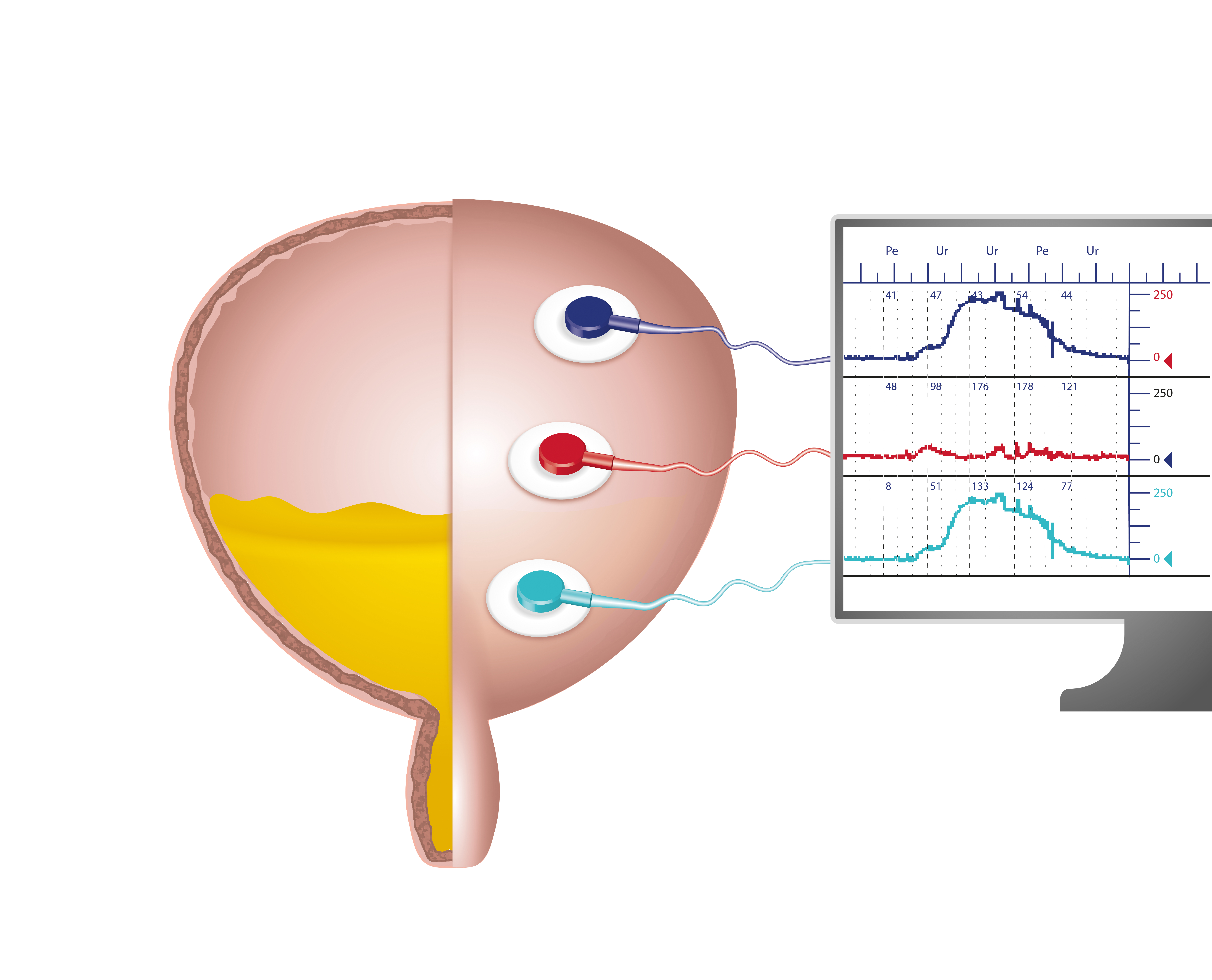Even though new medical technology promises improved care with less work, it's also associated with an increased patient desire for higher-quality services. Specialist practitioners like urologists now face not only the need to master new tools and methods but also an ever-growing demand for their attention – making it tough to stay focused and efficient.
Outsourcing may be the solution. While they're not for every practice, many urologists depend on contracted services to deliver caregiving that improves their patients' lives and advances the field. Here's a quick primer on medical outsourcing and five ways it's empowering urologists to achieve higher standards of care.
Read More
Topics:
outsourcing diagnostics,
outsourcing urodynamics
When it comes to conditions of the lower urinary tract, there are key differences to consider in order to determine which form of testing is the most appropriate. While there are striking similarities between methods that can potentially create confusion upon first glance, a practitioner knows which test is most appropriate for the corresponding symptoms.
One area that has the potential to create this confusion is determining the difference between the need for the broader Urodynamics testing panel or the Cystometrogram. While these two procedures involve many of the same elements, they are in fact different.
This post will provide a detailed comparison of the two methods and describe how they are similar, but also different. First, a brief explanation of the two methods before we compare:
Read More
Topics:
Urodynamics Testing,
BHN,
outsourcing diagnostics,
urodynamics,
incontinence,
urodynamics service provider,
male urodynamics,
stress incontinence,
Uroflow,
Uroflowmetry,
UroGynecology,
Cystometrogram
For any USA-based medical practice, there is a wide range of benefits that comes with outsourcing. As the healthcare industry becomes more competitive, outsourcing non-core services can help practices improve patient experiences and outcomes while also helping to create additional revenue without the need for training their own staff or investing in expensive equipment and facilities, all of which is handled by the specialized healthcare professional who is outsourced to.
Read More
Topics:
Urodynamics Testing,
BHN,
Reimbursement,
outsourcing diagnostics,
Reimbursments,
urodynamics equipment,
urodynamics staffing,
clinical operations,
urology,
urodynamics interpretation,
urodynamics service provider,
male urodynamics,
urodynamics billing,
ObGyn Practices,
UroGynecology
When it comes to diagnosing patients right the first time, urologists, obstetricians, gynecologists, and healthcare professionals who want to improve the services they offer to patients all need to have access to the right testing options for diagnosing specific issues. The same is true when it comes to monitoring the health of the lower urinary system, with urodynamics being the only testing option specifically designed to monitor patient urinary health.
What Is Urodynamics?
Urodynamics refers specifically to the study of how the bladder, urethra, and associated sphincters in the body do their job of storing and releasing urine. Urodynamic testing therefore refers to the set of tests that provide healthcare professionals with valuable information on the health and function of a patient’s urinary system.
Read More
Topics:
Urodynamics Testing,
Reimbursement,
outsourcing diagnostics,
urodynamics,
urodynamics equipment,
urodynamics staffing,
clinical operations,
video urodynamics,
urodynamics interpretation,
urodynamics service provider,
post-void residual,
male urodynamics,
Pediatric Urodynamics,
Uroflowmetry,
urodynamics catheters,
UroGynecology
Urodynamic testing has the potential to provide health care professionals with much more detailed information on the health of their patient’s bladders, urethras, and their body’s ability to store and flush urine. Urodynamics, especially when used in rural health clinics, allows health care professionals to more accurately diagnose causes of urinary incontinence and other issues relating to the bladder and lower urinary system, making it a key service that needs to be integrated into RHC practices.
What Is Urodynamics?
Urodynamics along with urodynamic testing, in its simplest form, is the assessment of how the bladder, urethra, and associated sphincters do their job for storing and releasing urine from the body.
Read More
Topics:
Urodynamics Testing,
BHN,
Reimbursement,
outsourcing diagnostics,
urodynamics,
urodynamics equipment,
urodynamics training,
Reimbursment Trends,
urodynamics staffing,
clinical operations,
urodynamics service provider,
urodynamics billing,
Medical Practice Operations,
Uroflowmetry
Urodynamics (UDS) testing is usually performed in conjunction with a slew of other urologic tests and functions in concert with other diagnostics. This blog post will explore other common tests used in patients who will be having UDS testing and explains the indications and data that come from those other assessments.
All patients who have UDS will undergo a comprehensive history, physical and laboratory testing. The history will focus on the specific urologic complaints the patient has, but also bowel issues, neurologic disorders and whatever medications the patient is on as well. Surgical history, especially related to urinary tract and anti-incontinence surgery is critical as is diet information. Lab testing will include a urinalysis to search for blood or infection, urine culture if infection is suspected, and many patients will have serum lab testing to assess kidney function.
Read More
Topics:
Urodynamics Testing,
outsourcing diagnostics,
urodynamics service provider,
Uroflowmetry,
Urology Practice Trends,
Post-Operative Urodynamics
The effective provision of medical device field service is not a simple process to optimize. There are many factors that influence operations, from resources and technology to staff management and coordination. Field service organizations that keep track of all of these different factors manage to provide a seamless and efficient service and keep their customers satisfied.
But no business is perfect from the get-go. In most cases, a period of trial and error is unavoidable while getting a grasp of the intricacies of running and managing field service operations, especially when it comes to medical devices. Being aware of the most common mistakes made in the delivery of field service support can significantly shorten the learning curve.
With that in mind, here are some of the most common errors that medical device field service organizations commit while providing and managing their service:
Read More
Topics:
outsourcing diagnostics,
urodynamics staffing,
clinical operations,
urodynamics service provider,
Medical Device Field Service
I was recently having a conversation with a very successful urogynecologist that operates in on the East Coast. We were talking about diagnostics (such as urodynamics), the cost of the equipment, and the difficulty of retaining well-trained staff. He was surprised to learn that we served many large urogynecology practices and urology practices. He assumed that all of these large practices would perform their urodynamics testing in house. His thinking was that the clinic would be much more profitable if it owned the equipment, trained the staff, and dealt with all the other details to be able to deliver urodynamics testing services to their patients. This is true for some large urology and urogynecology practices, however it is certainly not true for many practices. Also, I believe he was not considering all of the pertinent details related to outsourcing diagnostics.
Read More
Topics:
outsourcing diagnostics,
urodynamics









